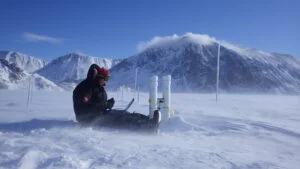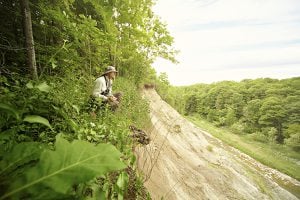
Science & Tech
20 Canadian innovations you should know about
Celebrating Canadian Innovation Week 2023 by spotlighting the people and organizations designing a better future
- 3327 words
- 14 minutes
This article is over 5 years old and may contain outdated information.
People & Culture

Despite Canada’s silver win at the National Geographic World Championship in July, geographic educators say many Canadian students are lost on a map.
Geographers from the private sector, academia and government met this weekend in St. John’s, N.L. to develop an action plan to tackle issues of how geography is taught and valued Canada.
Attendees of the event, organized by the Royal Canadian Geographical Society and the Canadian Association of Geographers, say Canada’s geographic education is lagging behind other countries, which puts Canada at risk of falling behind in other sectors, including global business. But they hope to change that.
“This was really a chance to bring people in from around the country and to make a cohesive strategy on how best to address the challenges in geographic education across Canada,” says Lynn Moorman, an assistant professor at Mount Royal University and executive committee member at Canadian Geographic Education.
“We’re quite behind compared to other countries,” she says. “We’re well known for a really good education system. But when we see other countries, such as Finland or Australia, moving forward with geographic education, it just emphasizes how important this initiative is.”
James Boxall, director of the Geographical Information Sciences Centre at Dalhousie University and a recipient of The Royal Canadian Geographical Society’s Geographic Literacy Award, says that geography isn’t just about looking at maps, but also the ability to think and analyze issues spatially and approach issues from a geographic perspective. He says this kind of thinking helped with the Calgary floods, allowing people to “mitigate the impact of the floods and prevent the loss of lives and homes.”
From police and fire departments to delivery companies and doughnut shop chains, Boxall says many organizations use geography to plan how to provide their services and, in some cases, how to save lives. When people do not have a geographic perspective, he says, they are less attuned to the world around them and less able to compete in it.
Event attendees spent the meeting developing a plan to boost geographic literacy among Canadian students. Their strategy includes promoting geographic education and research and improving communication amongst educators on how to teach geography.
“Right now, there’s very little communication between universities, community colleges, and elementary and middle schools,” Boxall says. “I think people now see a greater connection (between geographic education at each level) and a greater need to form those stronger linkages.”
Boxall hopes both the Canadian Association of Geographers and the Royal Canadian Geographical Society will endorse the action plan that came out of the meeting in the near future.
For more information about the Geography Education Meeting at Memorial University, visit Boxall’s website: spatial-information.org.
Are you passionate about Canadian geography?
You can support Canadian Geographic in 3 ways:

Science & Tech
Celebrating Canadian Innovation Week 2023 by spotlighting the people and organizations designing a better future

People & Culture
The story of how a critically endangered Indigenous language can be saved

Places
In Banff National Park, Alberta, as in protected areas across the country, managers find it difficult to balance the desire of people to experience wilderness with an imperative to conserve it

Places
It’s an ambitious plan: take the traditional Parks Canada wilderness concept and plunk it in the country’s largest city. But can Toronto’s Rouge National Urban Park help balance city life with wildlife?